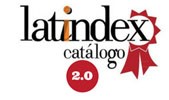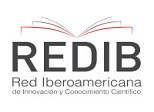The Principles of the Ingenious Codeand its Incidence on Higher Education Institutions
DOI:
https://doi.org/10.69890/hallazgos21.v3i0.266Keywords:
Knowledge; higher education; Ingenious Code; Ecuador.Abstract
The Organic Code of the Social Economy of Knowledge, Creativity and Innovation, also called the Ingenious Code was born as a dream of the National Secretariat of Higher Education Science and Technology of Ecuador (SENESCYT); created and discussed through the "wiky collaboration" process.
This document made a bibliographic review of articles published on the web and the legal regulations of the code, this is a research of a descriptive and analytical type that seeks to make known the conceptualization of the code, its principles and regulations as a link with universities, in addition to the controversial points that derive from it.
Universities are the link between the State and society to promote the knowledge that is the most precious intangible asset of the development of a nation. Under these principles, HEIs are actors and managers of knowledge and it is part of their functions to bring knowledge of the classrooms to the community, through the projects of bonding; the research promotes the development of new inventions, creation of software products as initiatives of its students, and combat biopiracy. The Ingenious Code seeks to move Ecuador from digital illiteracy to the age of knowledge.
References
AEPROVI. (13 de marzo de 2013). En Ecuador, acceso a internet creció un 95%. https://www.aeprovi.org.ec/es/recursos/noticias-del-sector/16-noticias-2013/412-en-ecuador-acceso-a-internet-crecio-un-95
ANDES. (11 de octubre de 2016). Con el código ingenios, Ecuador tendrá un nuevo modelo de gestión de los conocimientos y de producción. Recuperado de: http://www.andes.info.ec/es/noticias/codigo-ingenios-ecuador-tendra-nuevo-modelo-gestion-conocimientos-produccion.html
ASLE. (5 de octubre de 2016). Software Libre vs. Software estable. https://www.asle.ec/software-libre-vs-codigo-abierto/
COESC. (2016). El Código orgánico de economía social del conocimiento e innovación. http://coesc.educacionsuperior.gob.ec/index.php/C%C3%B3digo_Org%C3%A1nico_de_Econom%C3%ADa_Social_del_Conocimiento_e_Innovaci%C3%B3n
Correa Delgado, R. (2008). Decreto 1014 Software Libre en Ecuador. Recuperado de: http://www.estebanmendieta.com/blog/wp-content/uploads/Decreto_1014_software_libre_Ecuador.pdf
Diario El Comercio. (2015). El código orgánico de la Economía del Conocimiento se entregará en la Asamblea. Recuperado de: http://www.elcomercio.com/tendencias/leyingenios-Senescyt-conocimiento-educacion-ecuador.html
Diario El Comercio. (2017). Ecuador suma más esfuerzos en favor de la innovación. http://www.elcomercio.com/actualidad/negocios/ecuador-suma-mas-esfuerzos-favor.html
OMPI. (15 de junio de 2017). Índice Mundial de Innovación 2017: Suiza, Suecia, los Países Bajos, los EE.UU. y el Reino Unido encabezan el ranking anual. http://www.wipo.int/pressroom/es/articles/2017/article_0006.html#top
Senescyt. (2016). Boletín de Prensa No. 181. Recuperado de: https://www.educacionsuperior.gob.ec/el-numero-de-investigadores-en-ecuador-crece-3729-en-cinco-anos/
Senescyt. (2017). Código Ingenios. http://www.educacionsuperior.gob.ec/wp-content/uploads/downloads/2015/06/ingenios.pdf
Senescyt. (2017). Código Ingenios.http://www.educacionsuperior.gob.ec/los-once-principios-de-ingenios/
The Global Innovation Index. (2017). Latin American region's performance in GII 2017. Recuperado de: https://www.globalinnovationindex.org/gii-blog/latin-american-region%27s-performance-in-gii-2017--b147
Downloads
Published
How to Cite
Issue
Section
License
Los artículos enviados a la Revista Científica Hallazgos21 deberán ser totalmente originales e inéditos.
Los autores son los responsables de los textos y las imágenes incluidas en los artículos y no necesariamente reflejan el pensamiento de la editorial o de la Pontificia Universidad Católica del Ecuador, Sede Esmeraldas (PUCESE).
Los autores disponen cederle a la Revista Científica Hallazgos21 todos los derechos inherentes para la edición, publicación y distribución o divulgación del mismo.
Se autoriza a las revistas firmantes de los acuerdos de Encuentros de Revistas Latinoamericanas para reproducir en parte o totalmente los artículos con la sola mención de la fuente claramente señalada.







